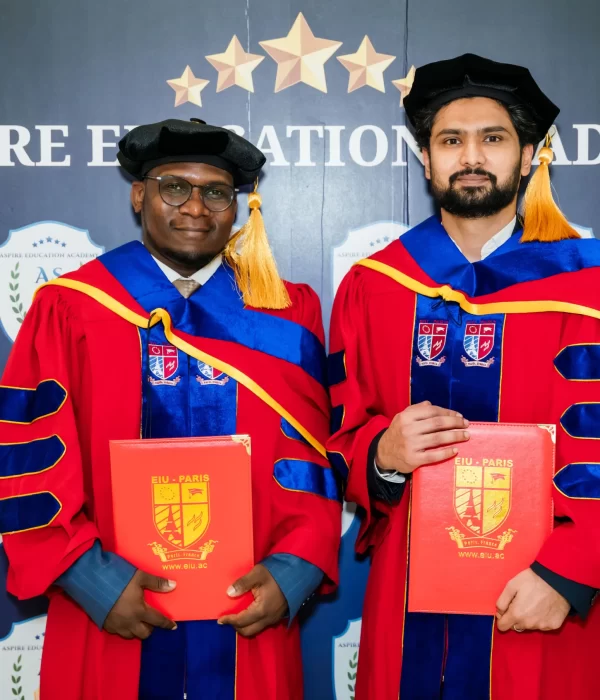Practitioner’s Doctorate Programme
VAE Process for Professional Doctorates: Recognizing Prior Learning
The Practitioner’s Doctorate degree programmes, are aimed at further enhancing professionals in 3 specific vocational fields, namely business administration and management (D.B.A. and D.Man.), teaching and education (Ed.D.), as well as psychology (Psy.D.).
Since the Practitioner’s Doctorate programmers are undertaken by professionals working in specific vocational sectors, the programmers focus on, and revolve around real-life issues, challenges, and problems that impact workplace dynamics, interactions and performance.
Action research carried out by doctorate students are aimed at solving some of these real-life issues and challenges, along with contributing to the existing body of knowledge and scholarly theories in the field of management, education, and psychology.
There are two routes to pursue Practitioner's Doctorate namely :
- Doctorate Through Research/ Thesis (DTR)
- Doctorate Through Publication (DTP)

Doctorate Through Research/ Thesis (DTR)
This route is suitable for candidates who have not had any previous extensive scholarly research and thesis writing background. This route is also the only route possible for those who haven’t published any scholarly work in the past.
The DTR route ensures the mastery of key skills and mindset required in the planning and execution a full fledged doctorate level research, along with empirical data collection, data analysis, and presentation of evidence-based recommendations for real-life improvements at workplace.
Candidates start off with a module in research methodology, involving both quantitate and qualitative approaches, work on producing a written research proposal, and then proceed to carrying out a full action research and concluding it with a written doctorate thesis of no less than 30,000 words, under the guidance and coaching of an expert supervisor, duly appointed by the university’s academic administration team.
During the duration of the study, candidates are also expected to attend and/or present scholarly papers, related to their field of research, in national or international conference or seminar of their choice.
A viva voce is conducted at the end of the thesis writing and submission, where candidates face the scrutiny and evaluation of at least 3 external senior examiners. Candidates are required to present their research work during the viva voce, and defend their thesis by answering questions posed by the 3 external senior examiners.
Modules to be completed
Module 1
RBL810 Research Methodology: Quantitative and Qualitative Analyses (30 ECTS)
Module 2
RBL820 Scholarly Conference / Seminar I (15 ECTS)
Module 3
RBL830 Scholarly Conference / Seminar II (15 ECTS)
Module 4
VIVA920 Viva Voce (30 ECTS)
Module 5
DSSR980: Doctorate Thesis (90 ECTS)
Doctorate Through Publication (DTP)
The previously published scholarly work would be assesses to the same rigorous standards as a traditional doctorate by thesis. Candidates are expected to provide a written supporting statement, which could range from 5,000 to 10,000 words, and present their scholarly work to academic committee. Specially assigned supervisors would assist candidates with selecting relevant publications to submit for consideration, as well as assist the candidates with creation of appropriate supporting statement.
Candidates choosing the DTP route to Doctorate degree would need to defend their previous publication in front of at least 3 senior external examiners. Candidates are also expected to attend and/or present scholarly papers, related to their field of research, in national or international conference or seminar of their choice.
Modules to be completed
Module 1
RBL820 Scholarly Conference / Seminar I (15 ECTS)
Module 2
RBL830 Scholarly Conference / Seminar II (15 ECTS)
Module 3
VIVA920 Viva Voce (30 ECTS)
Module 4
DSSR980: Doctorate Thesis (120 ECTS) – Previous Publication Route
Specializations
- Doctorate in Business Administration (D.B.A.)
- Doctor of Management (D.Man.)
- Doctor of Education (Ed.D.)
- Doctor of Psychology (Psy.D.)
Get in Touch to Start Your Educational Journey


